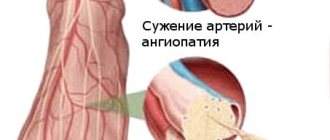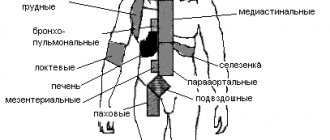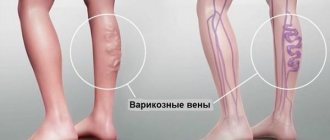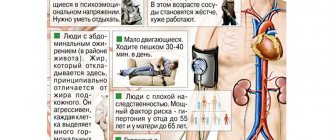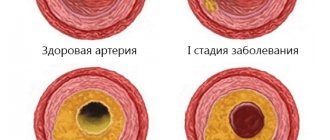Alzheimer's disease is a neurodegenerative pathology with progressive senile dementia. Characterized by the development of cognitive disorders and dementia. Neurological disorders in Alzheimer's disease are caused by the formation of insoluble, hard amyloid proteins (senile plaques) that envelop and destroy functional brain cells. Gradually the process spreads, capturing new areas.
Modern medicine can only offer palliative treatment. Complex therapy and proper care can significantly slow down destructive processes, increase the duration and maintain the quality of life of patients with Alzheimer's disease.
Causes of the disease
According to statistics, symptoms of Alzheimer's disease develop in 5-8 people per 1000 population. Every second case of dementia is caused by this particular pathology. In the last decade, there has been an increase in incidence, but doctors still find it difficult to name the exact causes of neurodegenerative processes. Increased risks have been proven in the age group over 65 years of age. After 95 years, almost 70% of older people develop characteristic symptoms. Women are affected more often than men, but this may be due to their longer life expectancy, especially in European countries.
Most experts agree that the main factor that triggers neurodegenerative processes is the natural aging of the body. Slowing metabolic processes contributes to the accumulation of amyloids.
Genetic studies have proven a hereditary predisposition to Alzheimer's disease. Mutations in several chromosomes lead to disruption of protein metabolism in cerebral tissues. Genetics most often causes the early onset of the disease, when the first signs of dementia appear at the age of 30-40 years.
The following factors can accelerate the development of pathology:
- Poor nutrition.
- Living in areas with poor ecology.
- Bad habits.
- Poisoning with chemicals, heavy metals.
- Chronic stress.
- Past neuroinfections: meningitis, encephalitis.
- Brain tumors.
Reasons for the development of pathology
Alzheimer's is a serious brain disease. Its cause lies in the destruction (destruction) of nerve cells responsible for transmitting impulses between brain structures. The hippocampal region is the first to undergo destructive processes, so memory deterioration is a clear early manifestation. Old people are most susceptible to pathology, although cases have also been reported in people over 45 years of age. Statistics also indicate that it is more often diagnosed in women.
Common causes of asthma progression include:
- Suffered traumatic brain injuries;
- Hereditary predisposition;
- Various ailments - atherosclerosis of the head and neck vessels, diabetes mellitus, lipid metabolism disorders, etc.;
- Being overweight;
- Bad habits and in particular smoking (including passive);
- Anomalies in the genetic code;
- Stress, depression, etc.
Symptoms of Alzheimer's disease
The pathology is characterized by a long and subtle onset. In the early stages of Alzheimer's disease there may be no symptoms at all. Plaques begin to form in the brain tissue several years before the first manifestations.
As the area of damage increases, the first nervous disorders are observed:
- Decreased memory and attention.
- Disorientation in space and time.
- Difficulty in building logical chains.
The person becomes distracted and forgetful, for example, often losing his keys or forgetting where he put his phone. It is difficult for the patient to master new types of activities; he begins to pause in his speech to find the right words. The progression of the pathology is steady, without periods of remission.
Based on the severity of symptoms, there are four stages of Alzheimer's disease:
- Predementia. The initial form of pathology. Changes in the patient’s condition can only be noticed by loved ones or a doctor during neurocognitive testing. The predementia stage can last up to 8 years. The main symptoms usually include short-term memory disorder, absent-mindedness, and difficulty planning activities. Alzheimer's disease in the elderly in its first manifestations is always accompanied by detachment and apathy - this is one of the typical signs.
- Early dementia. Memory loss is progressing. Changes in the patient's behavior are very pronounced, and it is no longer possible to attribute them to old age. A person remembers well the events of many years ago, but cannot always say whether he had lunch today or not. Disorders of hearing, vision, and tactile perception develop. In early dementia, speech impairment may occur. The patient's vocabulary is significantly reduced; he cannot understand some new expressions. Doing things that require fine fine motor skills takes longer than usual. It is difficult for a person to insert a thread into a needle, fasten buttons on clothes, or write anything.
- Moderate dementia. The patient finds it difficult to carry out daily activities. A person becomes sloppy, poorly combed, he may not notice the mess in the room. Memory and spatial orientation are impaired - older people with moderate dementia often become lost. It is difficult for the patient to remember his name, give his address, or say which direction he came from. Neuropsychiatric symptoms intensify: the person becomes irritable, whiny, and aggressive. Many patients resist care and tend to wander. Writing and reading skills are almost completely lost. Possible urinary incontinence.
- Severe dementia. The patient is not capable of self-care. He needs help to get dressed, wash, and eat. Speech is limited to a few words or sounds. Many patients in the stage of severe dementia can still maintain contact with loved ones and perceive their surroundings, but complete apathy gradually sets in. The patient stops moving and does not recognize his relatives. The muscles atrophy, complications of immobility arise, which usually cause death.
Alzheimer's disease is the most common form of dementia. With it, brain cells gradually die, causing progressive deterioration of memory, thinking and other mental functions.
The risk of developing this disease increases significantly after age 65.
Synonyms Russian
Senile dementia of the Alzheimer's type.
English synonyms
Alzheimer's disease, Alzheimer's disease, AD.
Symptoms
The first symptoms of Alzheimer's disease appear as forgetfulness, decreased attention, poor speech, and minor problems with coordination of movements. Over time, motor skills are impaired, memory, thinking, spatial orientation deteriorate significantly, and speech becomes difficult. Moreover, the patient may not notice the changes happening to him, despite the comments of others.
Alzheimer's disease can manifest itself as the following abnormalities.
- Memory impairment. The location of objects in one’s own home, information about events, meetings, and at later stages even the names of family members and the names of objects are forgotten.
- Disorientation in space and time. Patients are unable to name the day or season. Orientation in space becomes difficult - a person can get lost even in a familiar place.
- Disorders of oral and written speech. At first, difficulties arise with choosing the right words and wording, it becomes difficult to designate some objects, and over time the patient may completely lose the ability to speak and write.
- Thinking disorders. A person experiences difficulty concentrating and thinking, and the ability to count and manage money is lost.
- Difficulty in making decisions. The patient stops making decisions that are adequate to the current situation.
- Disturbances in planning and performing habitual actions. A person finds it difficult to perform even such simple tasks as cooking and self-care.
Personality and behavior changes:
- depression,
- anxiety,
- reluctance to communicate with people, leave the house,
- mood swings,
- distrust of others, even relatives,
- stubbornness,
- irritability and aggressiveness,
- sleep disorders.
General information about the disease
Alzheimer's disease is a form of dementia characterized by cognitive impairment and behavioral disorders.
This is an incurable disease in which brain cells (neurons) and connections between cells (synapses) gradually atrophy, causing a decline in memory, thinking and other mental functions.
As a rule, Alzheimer's disease is found in people over 65 years of age, but there is also early Alzheimer's disease, which occurs in 30-40 years.
There are two hypotheses about the mechanism of brain cell damage in Alzheimer's disease.
1. Formation of plaques from the beta-amyloid protein. Normally, it plays an important role in the life of neurons, but in Alzheimer's disease, for unknown reasons, beta-amyloid begins to deposit in the brain tissue, forming plaques that destroy brain cells.
2. Impaired functioning of tau protein. For the growth and development of brain cells, they need a regular supply of nutrients. If the tau protein, which is responsible for transporting these substances to cells, stops working normally, the cells do not receive nutrition and, as a result, die.
It is believed that the development of Alzheimer's disease is associated with a combination of factors such as age, genetic predisposition, lifestyle, and environmental characteristics.
At first it manifests itself as a slight impairment of the patient’s cognitive functions. As it progresses, changes in the brain gradually affect physical functions such as swallowing, bowel and bladder balance. This feature may increase vulnerability to the following violations:
- to pneumonia and other infections (in such cases, swallowing becomes difficult, and liquid or food enters the respiratory tract and lungs);
- Inability to control bladder emptying (urinary incontinence) resulting in the use of a tube to drain and collect urine (urinary catheter), increasing the risk of urinary tract infection
- to injury due to a fall.
Over time, the symptoms of Alzheimer's disease intensify. In severe forms of the disease, exhaustion, apathy, lack of speech, significant weight loss, and inability to self-care are observed. Death usually occurs as a result of the development of a disease - for example, due to a pressure ulcer or pneumonia.
Who is at risk?
- Elderly people. After age 65, the risk of developing Alzheimer's disease doubles every five years. It affects about 50% of people over 85.
- Persons with a hereditary tendency to develop the disease.
- People with minor cognitive disorders caused by other reasons (problems with memory, speech, attention).
Factors that increase the risk of developing Alzheimer's disease:
- low physical activity;
- smoking;
- high blood pressure;
- high cholesterol levels;
- poorly controlled diabetes;
- genetic predisposition.
Diagnostics
Currently, diagnosis is made through tests to rule out other causes of dementia. If Alzheimer's disease is suspected, the first step is to check all the mental functions of the body.
Laboratory research
Today, the ApoE gene polymorphism is considered to be the leading one in determining susceptibility to Alzheimer's disease. The E4 allele of the ApoE gene is associated with inheritance of an increased risk of developing this disease.
- Apolipoprotein E (ApoE). Detection of polymorphism e2-e3-e4
Blood tests can help your doctor rule out other possible causes of memory loss and confusion.
- Complete blood count (without leukocyte formula and ESR). A decrease in hemoglobin and an increase in mean erythrocyte volume (MCV) is characteristic of B12 deficiency anemia. An increase in white blood cells may indicate inflammation.
- Vitamin B12. Its deficiency may also indicate B12 deficiency anemia.
- Thyroid-stimulating hormone (TSH).
- Bilirubin, alanine aminotransferase (ALT), aspartate aminotransferase (AST). An increase in these indicators is characteristic of liver pathology.
- Antibodies to HIV, antibodies to Treponema pallidum. Dementia can be caused by HIV infection or syphilis.
To exclude other possible causes that explain symptoms characteristic of Alzheimer's disease, tests for electrolytes (potassium, sodium, chloride), erythrocyte sedimentation rate (ESR), and ceruloplasmin may be prescribed.
Other research methods
- Computed tomography (CT) and magnetic resonance imaging (MRI) to rule out causes of dementia such as tumors, brain atrophy, trauma, and strokes.
- Spinal puncture with collection of cerebrospinal fluid (CSF) to exclude neuroinfection.
Treatment
Unfortunately, Alzheimer's disease is incurable. Therapy involves taking medications that slow down the development of brain atrophy and cognitive disorders by increasing the number of connections in the brain.
In addition, patients need psychological support. Their relatives need to be patient, because communicating with and caring for such patients is often difficult.
Prevention
- Regular mental activity: continuous learning, for example learning foreign languages, leisure activities associated with mental stress (reading, playing a musical instrument, playing chess).
- Social activity – participation in the life of society, interaction with people.
- A healthy diet, in particular a sufficient amount of fiber (fruits, vegetables, cereals) and omega-3 fats (fatty ocean fish such as trout, salmon, pink salmon, flaxseed oil).
- Regular physical activity.
Recommended tests
- General blood analysis
- Vitamin B12 (cyanocobalamin)
- Thyroid-stimulating hormone (TSH)
- Potassium, sodium, chlorine in serum
- Erythrocyte sedimentation rate (ESR)
- HIV 1, 2 Ag/Ab Combo (determination of antibodies to HIV types 1 and 2 and p24 antigen)
- Treponema pallidum, antibodies, hypersensitive
- Potassium, sodium, chlorine in serum
- Total bilirubin
- Aspartate aminotransferase (AST)
- Alanine aminotransferase (ALT)
- Ceruloplasmin
Diagnosis of Alzheimer's disease
Patients are not always able to notice and understand changes in their body, so relatives need to bring a loved one to the doctor at the first manifestations of pathology. A neurologist diagnoses Alzheimer's disease. During the examination, he determines the level of the patient’s reflexes, conducts a series of tests to assess cognitive functions, establishes anamnesis, and the presence of provoking factors.
The set of examinations includes:
- General blood analysis. The results provide information about the presence of concomitant diseases and inflammatory processes in the body. It is recommended to do a detailed clinical analysis for the content of folic acid and vitamin B12.
- Biochemical blood test. Dementia can be caused not only by Alzheimer's disease, but also by a number of endocrine disorders and thyroid dysfunction.
- Blood test for HIV, syphilis, and other infections. The pathogen in the body worsens the patient’s condition and accelerates the course of neurodegenerative processes.
- Electroencephalography (EEG). The essence of Alzheimer's disease is the destruction of neurons and disruption of the conduction of nerve impulses. The EEG will show diffuse slowing of the signal.
- Computed or magnetic resonance imaging. The photographs show areas of atrophy of the cerebral cortex and senile plaques. Based on the results of MRI, differential diagnosis of pathologies such as hematomas, neoplasms, and strokes is carried out.
- CSF analysis. In Alzheimer's disease, an increased level of amyloid is detected.
- Genetic analysis. The presence of a mutation in the ApoE gene, the defect of which causes dementia, is detected.
Diagnostics
If you have any suspicions about the possible development of the disease, it is better to consult a doctor. He will assess the situation and, if necessary, prescribe tests and studies:
- Blood – general, detailed, for the Wasserman reaction and HIV;
- Electrocardiogram;
- Thyroid gland.
This makes it possible to exclude the possibility of illnesses with similar symptoms and to obtain an overall picture of the patient’s health status. An older person may be referred for an MRI, cerebrospinal fluid examination, etc. For a general assessment, a variety of neuropsychological tests are suggested. During the examination, information about previous injuries and illnesses is also collected.
Treatment of Alzheimer's disease
Drug treatment
The doctor prescribes symptomatic therapy. It is important to alleviate the patient’s condition as much as possible, to help him retain memory and attention longer, and to increase life expectancy.
Drug treatments for Alzheimer's disease include:
- Cholinesterase inhibitors: rivastigmine, donepezil, haoantamine.
- NMDA-glutamate receptor blockers: akatinol-memantine.
The drugs are included in the list of vital drugs, their purchase is financed from the budget. When prescribed in the early and middle stages, medications help stop the progression of the disease.
To treat concomitant disorders, the doctor prescribes antipsychotics, antidepressants,
Social rehabilitation
It is important to maintain the patient’s usual lifestyle for as long as possible. Intellectual regression will be steady, but doing what you love and hanging out with friends will help slow it down. A person with Alzheimer's disease often lives “in the past,” so relatives are advised to discuss current events with him as much as possible and remind him of certain facts. If the patient was drawing or playing a musical instrument before diagnosis, let him continue. Active intellectual activity and movement stimulate the formation of new connections between neurons and use brain reserves, which helps resist dementia.
In many large cities, “schools for relatives” have been opened. The essence of the classes largely boils down to psychological support, but as part of the training they provide a lot of valuable information on caring for people with Alzheimer's disease. The attention of relatives is an important aspect of the social rehabilitation of each patient.
Some rules for caring for a person with dementia:
- As memory deteriorates, teach the patient to use simple paper notes. Everything in the room must be signed. Post detailed instructions for daily tasks, lists with meal times, etc. in visible places.
- Establish a clear daily routine. Breakfast, lunch, dinner, hygiene procedures - everything should be done at the same time. This contributes to the formation of “muscle” memory when a person acts automatically.
- Find something feasible for the patient to do. Many older people like to knit, read newspapers, and do crossword puzzles.
- Stay calm when communicating. You cannot shout at the patient, swear, or use physical force. With severe dementia, a person’s character and personality change greatly, but he does not behave this way on purpose, but because of his illness.
- Allow the patient to serve himself as much as possible. It is important for a person to feel his independence. You don't need to do all the household chores for him. The patient can wash the dishes or make the bed himself, even if it takes twice as long as usual.
- Make your surroundings safe. It is worth removing cutting and piercing objects from the room and leaving a minimum number of electrical appliances. As Alzheimer's disease progresses, patients tend to act rashly.
An integrated approach to treatment allows patients to maintain a fairly clear mind and the ability to self-care until old age. Life expectancy after diagnosis reaches 14 years or more. Relatives are advised to use the services of specialists, especially in the later stages of Alzheimer's disease. Professional care for a patient in a boarding house or hospice will significantly improve his well-being and allow the family to return to work and their normal lifestyle.
Treatment of the disease
Drug and physiotherapeutic methods of treating Alzheimer's disease do not provide a cure or slow down the rate of its progression. The treatment protocols followed by the clinics are aimed at relieving symptoms and improving the quality of life of people suffering from dementia.
Pharmacological support for patients is based on doctors’ assumptions about the reasons for the formation of senile plaques. The drugs offered to sick individuals are aimed at reducing the likelihood of massive death of neurons due to the formation of beta-amyloid and tau protein deposits on their surface.
Psychosocial therapy plays a significant role in maintaining the quality of life of patients. Doctors help sick people adapt to the disease. In the later stages of dementia, psychotherapists use art therapy, sensory integration techniques, and memory stimulation.
This approach does not allow achieving significant improvements in the patients’ condition, but it helps to normalize their mood and alleviate certain everyday problems.
Prevention of Alzheimer's disease
It is impossible to predict and prevent neurodegenerative changes in the brain in advance. But you can reduce the risk of their development. It has been proven that people engaged in intellectual work are less likely to suffer from dementia. A good prevention of Alzheimer's disease are special gymnastics and exercises for mental mobility. It is recommended to read books, solve crosswords, and engage in scientific activities as far as possible until old age.
Maintaining mental balance is one of the effective methods of preventing dementia. Stress and nervous tension should be avoided. Physical activity, frequent walks in the fresh air, and proper nutrition help improve overall health.
What are the risk factors for Alzheimer's?
This pathology is considered the most common form of senile dementia. Around the world, the number of cases is growing every year. Alzheimer's disease is most often observed in older people. As a rule, patients are people over 80 years of age. This age group has about 70-75% of the signs of various forms of senile dementia.
Technological progress is considered one of the reasons for the development of Alzheimer's disease. The fact is that people use mental functions less and less in their daily activities. The simplest example: mathematical operations on a calculator. Modern people often use it even for the simplest calculations. Therefore, experts advise counting independently in order to prevent dementia.
In addition, doctors do not recommend taking a shopping list with you to the store. Regular use of recordings contributes to the gradual atrophy of brain cells. The rhythm of life in which we now live becomes an involuntary accomplice in the development of all kinds of pathological processes. For this reason, many people cannot afford to eat right and avoid worries.
What to look for when self-diagnosing?
Not all people know exactly when to suspect negative changes in an elderly relative. Dynamics of severity of symptoms of dementia:
Predementia
The following symptoms are typical for this condition:
- impairment of working memory;
- inability to concentrate even on the simplest tasks;
- absent-mindedness;
- violation of abstract and logical thinking;
- inability to learn new skills and remember information;
- slight cognitive deviations (visible only to the doctor during testing).
<Primary stage
The progression of the disease is accompanied by the following deviations:
- rapid progression of memory impairment;
- disturbance of perception (agnosia);
- speech impairment (significant reduction in vocabulary, constant speech pauses without necessity, slow speech).
Moderate pathology
At this stage of development of the deviation, early symptoms worsen. Plus, physical disorders are added to everything:
- it becomes difficult for the patient to perform complex household tasks (for example, pay utilities, prepare food, etc.);
- professional degradation occurs;
- the mood is constantly changing - from complete apathy to aggression (touchiness goes into the stage of exacerbation).
Severe pathology
This stage of dementia means a complete loss of the ability to express oneself normally and perceive the surrounding reality. The patient suffers from moral and physiological exhaustion, he loses a number of cognitive skills.
Often, elderly patients at this stage do not respond to sound and light stimuli; they completely switch to the state of a bedridden patient, which leads to the appearance of bedsores, the development of infections and, as a result, death.
Causes
There are many theories about the occurrence of Alzheimer's disease, but the exact cause has not been established.
The exact cause is still not determined.
Lack of acetylcholine. It was thought that the disease might be related to a deficiency of this neurotransmitter. But it turned out that the administration of this substance does not improve the condition of patients.
Amyloid theory. Amyloid protein is deposited in brain tissue and is detected on CT/MRI in the form of plaques. First, the transmission of nerve impulses is disrupted, then the brain cells die. It can take 10-15 years from the appearance of the first plaques to mild forgetfulness3.
Tau theory. Structural abnormalities occur in the structure of tau protein, which is contained in nerve cells. This disrupts the transmission of nerve impulses, and ultimately leads to the death of the neuron. These disorders are usually detected after the onset of amyloid plaques.
Genetic predisposition becomes the cause in only 10% of cases1.
Stages of the disease
Alzheimer's disease develops gradually, not all at once.
"Doubtful" dementia
The early stage may not be noticeable to others and can only be revealed through detailed neurocognitive tests. This stage is characterized by mild forgetfulness and inaccurate memories. You can also notice difficulties in determining the similarities and differences between objects and events. Abstract thinking and planning are difficult. In ordinary life, we won’t even notice this, so a person manages to hide or compensate for small problems in communication and work.
Mild dementia
Memory impairments become more obvious, especially for recent events. A person can get lost and forget his usual route. Confuse the order of events. Cannot find commonality or compare two objects or events. The ability to do calculations and write letters is lost. Such a person will speak slowly, use simple words, sometimes they may not be enough for reasoning. At the same time, the usual self-care activities are preserved.
Changes in behavior are already possible in the form of petty nonsense that someone is stealing from him, oppressing him, or causing harm. The state may be depressed due to the understanding that “something is wrong” with the head.
Moderate dementia
At this stage, learning new information becomes impossible. A person gets confused in the order of important events in his own life. He ceases to understand where he is and what time it is. The stock of memory and knowledge is constantly decreasing, they are becoming more and more inaccurate and blurred. Speech is impaired, first the ability to write is lost, then to read.
A “time shift” into the past may occur in consciousness. A person thinks and perceives everything as if he were not living today, but in a time that he still remembers. This may be accompanied by energy and a persistent desire for pseudo-activity.
Severe dementia
A person completely loses touch with reality, he not only does not orient himself in time and space, but also loses the idea of himself, his personality. Such a person cannot live independently. Attention is very weak. Reactions are more template, “automatic”. At the same time, emotional contact is preserved; an example would be “imaginary” conversations, when the patient tries to maintain a conversation, but its content is completely meaningless. The mood can change from aggression to apathy.
The patient is weakened psychologically and physically. Activity decreases sharply, complications develop in the form of bedsores, pneumonia, which leads to death.
